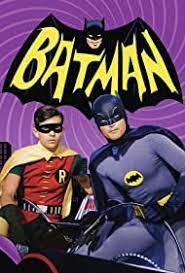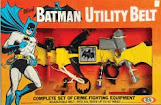I first encountered Hugh Lessig’s writing when he submitted “Last Exit Before Toll” to Mickey Finn: 21st Century Noir, and I’ve worked with him on several other projects since then. Additionally, I had the honor of reading prepublication proofs of Fadeaway Joe (Crooked Lane Books), and I believe it’ll be a strong contender for best debut novel of 2023.
— Michael Bracken
Of Trains and Life Without Walls
By Hugh Lessig
 |
| Hugh Lessig |
- Trains.
- People who go through life without four walls and a roof.
I can’t connect the two as well as he did, but I’ve somehow managed to incorporate both of these personal fascinations into crime stories, including my debut novel, Fadeaway Joe, releasing August 22.
Why trains? My grandfather, a railroad engineer, was killed in 1926 in a head-on collision of two trains in New Jersey. Thanks to a Facebook group dedicated to the rail line, I found the original accident report and a map of the crash site. He died on a nasty curve and made the front page the next day.
My grandfather was a complete unknown to me. No photos of him survive, and my own father was only 3 years old when the accident occurred. I can only imagine what he was like, and that’s what I did.
My grandfather was in my head while writing “Peace Train,” my contribution to the first volume of “Groovy Gumshoes: Private Eyes in the Psychedelic Sixties.” In this case, a train running through eastern Pennsylvania in the 1960s represents a fading industrial power, as trucks and the interstate highway system overtake the flow of commerce. In “Peace Train,” the locomotive is also a getaway for an abused kid fleeing the draft during the Vietnam War. The story centers on the P.I. hired to find him, a hard-bitten World War II veteran who wrestles with the ghosts that followed him home from Iwo Jima and Okinawa.The runaway knows exactly where to jump the train: a long, winding curve just before a bridge. The engineer is not a character in this story, but I always imagined my grandfather in the cab, taking his time, watching the curve. In this make-believe world, someone would relay the message that he needed to pull into a side track because another train was speeding the other way from New York. He’d come home that night to my grandmother and their eight children.
Why hoboes? This one is a bit harder to explain.
Today we don’t have rail-riding hoboes who travel to far-off job sites or simply seek a different place to live. As Lopresti cites in On The Fly, these men proved pivotal—if underreported—in influencing culture, politics and music of the era, not to mention their practical contributions to farming and industry.
If we don’t have hoboes in 2023, we certainly have the homeless. Is there a comparison? That’s tough. The homeless population of today defies a blanket description. Some are homeless for a short period. Others are chronically homeless and depend on shelters.
Still others experience a hidden form of homelessness. Instead of riding the rails, they “couch surf” with friends and relatives, or live out of their vehicles. They may even hold down jobs during this time, and their fellow employees may be none the wiser about their sparse living conditions.
I spent 36 years as a newspaper reporter and began reporting on homelessness toward the end of my career—oddly enough, when I picked up the military beat. Veteran homelessness was a problem in Hampton Roads, Virginia, which has a heavy military presence.
Over the years, I’ve interviewed homeless veterans of all types. Many battled drugs, alcohol or mental illness. Some, like that P.I. in “Peace Train,” dealt with post-traumatic stress.
I also met a few—not many—who tolerated or even favored the homeless lifestyle.
To be clear, these were not hoboes of the 2020s, on their way to some adventure or escape. And they didn’t become homeless by choice. But they found solace in their fluid world and didn’t want to go back to four walls and a roof. Maybe they put their best face forward for me, a newspaper reporter, to hide their fear or to rationalize their existence. But reporting gives you a pretty good BS detector, and I believed them.
Which brings me to Fadeaway Joe, my debut novel from Crooked Lane Books.The main character is Joe Pendergast, an aging mob enforcer who suffers from early-stage dementia and is abandoned by his longtime boss, a man he considered a brother. Joe vows revenge, but early in the story he meets 22-year-old Paula Jessup. She’s on the run from labor traffickers, having freed a woman from their clutches. She needs protection, and her plight gives Joe a higher purpose than personal vengeance. With a clock ticking inside his head, he begins to wonder about his legacy. What will he be remembered for? Maybe helping Paula straighten out her life is more important than personal revenge.
Paula is homeless. She’s living out of her car, a vintage 1975 Chevy Nova. Her closest friend runs a homeless shelter for women. She’s tough and independent, extremely nosey and a total pain in the ass to Joe, who isn’t accustomed to dealing with strong, independent women who talk back.
Homelessness gives Paula a hard edge. It’s essential to her character, but it does not define her life. I found this to be true of homeless people I’ve interviewed over the years. They are deeper and more complex than a shadowy figure holding a cardboard sign at the exit ramp.
Many have extensive work histories and job skills. Shipyard welders. Truck drivers. I once met a former city hall employee who served as a source for a news story. He was living on the street.
How quickly can people become homeless? It’s downright scary. If you live paycheck to paycheck and develop an expensive health problem, you’re in trouble. Then your transmission goes kablooey and you can’t drive to work, which leads to a lost job. (This last one is all too common. Can’t drive, can’t work.) You can’t pay rent and stay with friends or relatives until they get tired of the routine.
Homeless people can also be resourceful. Years ago, I met a homeless guy who handed me his business card. He somehow saved up enough cash through panhandling to print a few, and he cleaned yards, garages or houses. He left those cards in laundromats, grocery stores, pretty much everywhere. I always wondered what happened to him. Maybe he got back on his feet.
And maybe he’ll be in a crime story one day.










.jpg)
























